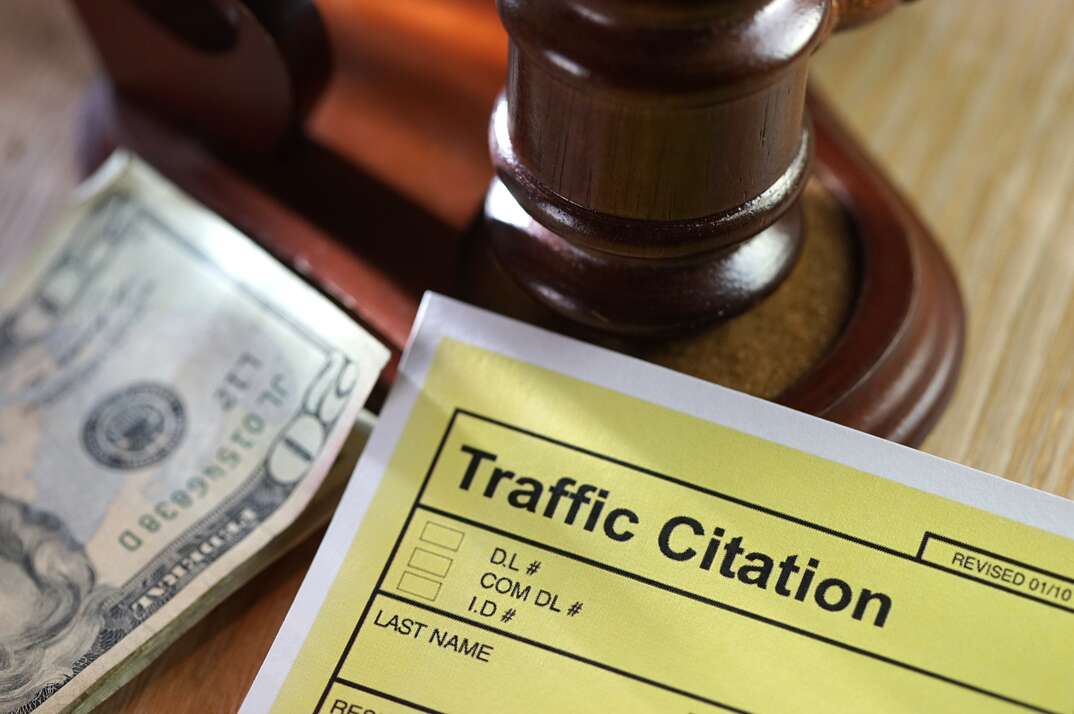What Happens If You Don't Pay a Traffic Ticket?

Police lights in your rearview mirror are the last thing you want to see. Getting pulled over can be inconvenient and expensive, but you must deal with the ticket if you get one.
While ignoring a ticket is a bad idea, don't panic if you forgot about one. There are usually ways to remedy the situation.
What Can Happen If You Don't Pay a Traffic Ticket or Appear in Court?
Many traffic tickets allow you to pay a fine by mail, phone or online by a specific date. If you miss the deadline, you may need to:
- Appear in court on a predetermined date. A court date may be written on the ticket. If you don't resolve the ticket before the deadline, you'll need to appear in court on this date.
- Contact the court to arrange a court date. You may need to take action to contest a ticket or set a court date if you don't pay.
- Pay additional fees. Some tickets, especially for parking and non-moving violations, increase fines and fees the longer they go unpaid. These tickets may eventually end up with a collections agency.
Failure to pay a ticket or attend court can lead to penalties like additional fines, suspension of your driver's license or the inability to register a car. If you miss court, a judge might issue a warrant for your arrest, which can mean jail time and additional expenses.
Traffic ticket laws and consequences vary significantly based on where the ticket was received. States, counties and cities impose their own laws and legal procedures, so check local laws or speak with a traffic attorney if you have questions.
The easiest way to avoid these consequences is to pay the ticket on time or appear in court as required. But what happens if you forget to pay a speeding ticket or miss the court date? If you forgot to pay, start by looking at the ticket for additional instructions. If there's a court date listed and it hasn't passed, you can attend court to deal with the ticket. You can try calling the court if you've missed a court date or final deadline. The court may give you a new date and hold off on additional consequences, especially if you don't have a history of legal problems.
Unfortunately, if a warrant was issued, you could be arrested whenever you have contact with law enforcement. You might be arrested if you're pulled over again or even when you go to court. Many cases are resolved without an arrest, but you may wish to speak with a traffic attorney for help.
More Related Articles:
- When Do You Need a Lawyer? Determine If You Need to Hire an Attorney
- What Is a Class-Action Lawsuit?
- What Is a Misdemeanor?
- What to Do After a Car Accident
- What Is Power of Attorney?
Is There a Grace Period If You Don't Pay on Time?
How long you have to pay a ticket and whether you get additional time depends on the ticket type and jurisdiction. For example, some cities give 20 days to pay or contest a parking ticket. If you miss the deadline, you can still pay the ticket, but there may be additional fees. For moving violations like speeding tickets, many jurisdictions require you to appear in court if you don't pay on time.
What Should You Do If You Can't Afford to Pay the Fines?
Don't ignore a traffic ticket if you can't afford the fines. An unpaid ticket will likely cost you more in the long run. Many courts offer payment plans that allow you to pay fines over time. You might have to attend a court date to ask for a payment plan, but check your ticket or call the court first. Some locations will let you set up a payment plan without coming to court.
If you can't get a payment plan from the court, it may be worthwhile to borrow money to pay for the ticket. Although borrowing money isn't ideal, it's likely a better option than losing your license or spending the night in jail.
Elocal Editorial Content is for educational and entertainment purposes only. The information provided on this site is not legal advice, and no attorney-client or confidential relationship is formed by use of the Editorial Content. We are not a law firm or a substitute for an attorney or law firm. We cannot provide advice, explanation, opinion, or recommendation about possible legal rights, remedies, defenses, options or strategies. The opinions, beliefs and viewpoints expressed by the eLocal Editorial Team and other third-party content providers do not necessarily reflect the opinions, beliefs and viewpoints of eLocal or its affiliate companies. Use of the Blog is subject to the
Website Terms and Conditions.The eLocal Editorial Team operates independently of eLocal USA's marketing and sales decisions.



